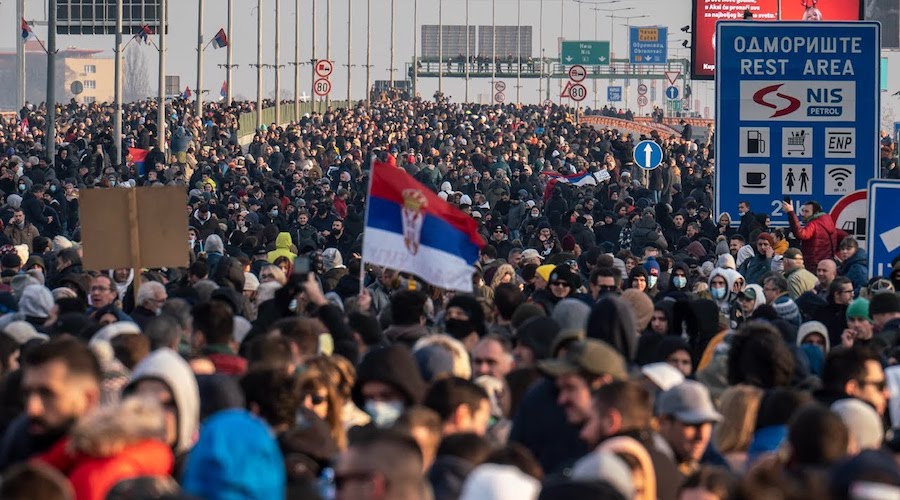Aleksandar Matković, a prominent activist leading protests against a proposed lithium mine in Serbia, received threatening messages on 14 August that initially seemed like a prank. The first message, sent to his Telegram account, threatened his life with the statement: “We will follow you until you disappear, scum.”
As the day progressed, Matković received a second message inquiring about the ongoing struggle against Rio Tinto, the company behind the $2.4 billion mining project, with the sender reportedly just 500 meters away. This fueled his fears that he was being closely monitored.
Matković, who was away from his home in Belgrade and visiting Split, became increasingly alarmed by the threats. He noticed the sender’s proximity and immediately contacted his lawyer. Shortly thereafter, he received a third, more threatening message written in broken German.
This message claimed to know about his involvement with anti-mining leaders, warned him against contacting the police, and suggested that he should remain out of the public eye for his safety. It also ominously mentioned concerns for his little brother’s safety.

Activist Aleksandar Matković Faces Threats Over Protests Against Serbian Lithium Mine
In response to the threats, Matković reported the incidents to the Belgrade police, who have begun an investigation. The situation is further complicated by the broader context of the lithium mining project, which has sparked widespread protests and significant social unrest in Serbia.
The opposition to the project has brought together diverse groups, including environmentalists and nationalists, each with their own concerns about the potential environmental impact and economic implications.
The proposed lithium mine in Serbia’s Jadar Valley has become a focal point of contention due to Serbia’s vast lithium reserves, which are crucial for electric vehicle batteries. The European Union is keen to secure a supply of these critical minerals by 2030.
However, critics like Matković argue that the project represents a neocolonial relationship between Serbia and Europe, which could undermine local environmental and economic conditions. Matković, who co-drafted a declaration against the mine, advocates for alternative green technologies and better public transport infrastructure.
Rio Tinto, the mining company behind the project, has condemned the threats against Matković and its employees, stating it opposes any form of intimidation or violence. Despite their condemnation, Matković has taken additional precautions for his safety, including seeking potential protection through a European embassy and involving the UN special rapporteur on environmental defenders.
He questions how such violence can align with global climate change strategies, highlighting the ethical concerns of achieving a “green transition” through intimidation and threats.
